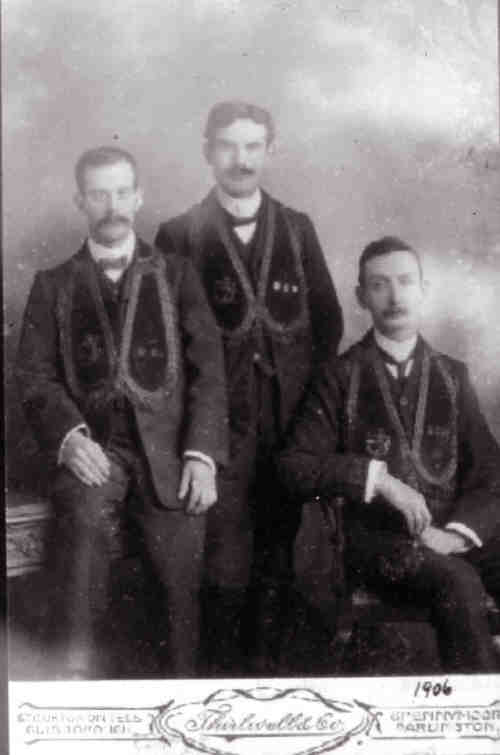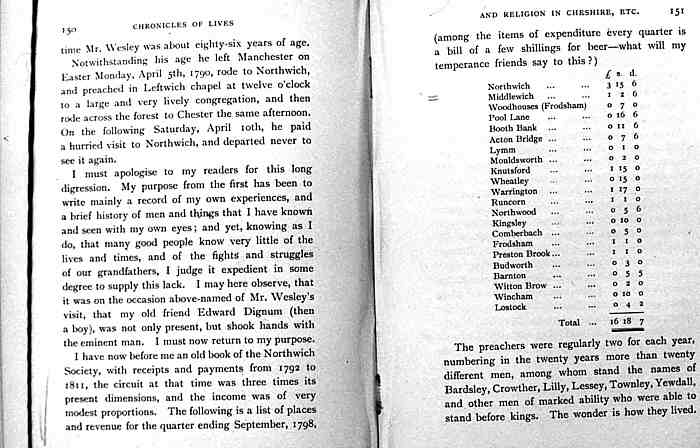TEMPERANCE IN VICTORIAN HALTON, RUNCORN AND WIDNES
Author :David Sterry.
David was a prominent member,and former Chairman, of our Society but sadly he died in February 2020.
This item has been divided into 7 pages. Each page connects to the next one but to go back use the "page back" arrow on your browser
- 1. The Introduction
- 2. The beginnings of the Temperance Movement
- 3. The Arguments
- 4. Temperance and Children
- 5. Temperance and Adults
- 6. The Mersey Mission
- 7. Conclusion
Introduction

My interest in this subject is due in part to the discovery of old photographs of my grandfathers showing them formally dressed and sporting the regalia of their Temperance Lodges. Apparently they were both members of the Middlesbrough Lodge around the turn of the century. My maternal grandfather was the District Chief Templar in 1906. His 50 plus years of membership in the Temperance movement is well documented in an extract taken from the Northumberland Good Templar Guide of February 1938 which together with the commentary of a maternal aunt, now deceased, served to paint a picture of a single-minded, obsessional and self-opinionated character. I began to wonder if the likes of him would have been found in Victorian Runcorn.
In his still to be published book "A History of Methodism in and Around Halton 1750-2000" Raymond Mullin devotes a chapter to the alcohol question. He writes "From the middle of the eighteenth century drunkenness in Britain reached pandemic proportions. Family income and expenditure were male dominated and, to the family breadwinner, alcohol was a socially acceptable drug. The beer which John Wesley and his followers took as a natural beverage (probably in preference to polluted water) did little harm but from around 1750 the importation of gin and the production of spirits, which sold at relatively low prices, led to the filling of debtor's prisons and a general lowering of the moral life of the nation. John Wesley had two views on the subject:
"1. A drunkard is a public enemy. Above all he is an enemy of God.
and
2. Distilled liquors have their use but are infinitely over-balanced by the abuse of them: therefore, were it I my power, I would banish them from the world."

Mullin goes on to tell how Methodists accepted Wesley's decree and how inevitably this led to a hardening of views on the use of alcohol generally. Progress was slow however and long after Wesley's death, beer drinking was still considered to be respectable amongst Methodists. In 1811 a few shillings for beer still appeared as an expense in the Northwich Circuit accounts (Runcorn and Halton were still part of the Northwich circuit at this time). As late as 1824 Samuel Lewis, landlord of the Norton Arms in Halton village, was considered a fit person to superintend the 3rd boys' class of the Halton Wesleyan Sunday school.